By Karl Pomeroy
Quemado Institute
March 11, 2016
 Two articles from Sputnik News, presented below, along with a commentary by geopolitical analyst Andrew Korybko, clarify the looming threat of a nuclear strike erupting out of North Korea’s desperate and furious leader Kim Jong-Un.
Two articles from Sputnik News, presented below, along with a commentary by geopolitical analyst Andrew Korybko, clarify the looming threat of a nuclear strike erupting out of North Korea’s desperate and furious leader Kim Jong-Un.
Desperate and furious is a dangerous combination. But global analysts, even bold ones, fall short of stating the obvious. Korybko characterizes Kim Jong-Un’s dead serious drive to prevail as naivete. The analyst also weaves in his theory that the United States government is provoking the North Korean dictator in its goal to contain Russia and China—although the slovenly US President and power-hungry Pentagon are rarely capable of successful strategies, given their failure in every operation they’ve attempted on the world stage.
And what is the unstated obvious?
The United States, in a blunder of unparalleled size, taught the world a lesson when it assassinated Saddam Hussein. Admittedly, Hussein was a brutal leader who brooked no dissidence from his people. Yet he was doing what he had to do to enforce secular order on a disparate population confined within unworkable British-drawn borders. That he had to govern the way he did is clear today. Western rule, which fractured the once successful nonsectarian country, has failed to accomplish what Saddam achieved.
The former Iraqi leader, who at one time had weapons of mass destruction, gave them up to comply with US demands. Hussein took the word of the United States that if he behaved he would be spared. He said to people close to him, according to reliable sources: “I get it. All you have to do is what the United States wants and everything will be fine.”
But instead of rewarding him for good behavior, George W. Bush, possibly in revenge over Saddam’s threat to kill the elder Bush after the previous Iraq war, reacted hysterically—or perhaps with sober calculation—to the Saudi Arabian 9/11 attack and concocted or condoned the lie that Hussein still had weapons of mass destruction.
For Kim Jong Un, it’s a case of Fool-me-once-shame-on-you-Fool-me-twice-shame-on-me. He’s refusing to be the second fool.
What are the lessons Hussein’s assassination taught to countries that wish to remain sovereign?
- Never give up your nuclear weapons.
- Only countries with nuclear weapons can remain sovereign.
- If you don’t have nuclear weapons, develop them.
- Never believe the United States when it says you’ll be safe if you give up your nuclear weapons.
This is elementary.
What is Donald Trump’s solution all this unnecessary nonsense? He advises the US to let China handle it. And he’s right. The United States government understands so little about the psychology of nations, if it tries to police North Korea, it will only increase the tension. China, right next door, understands the psychology of the North Koreans. Trust the Dragon’s judgment and turn North Korea over to it. Or even better, put well-deserved pressure on China to manage the crisis at its doorstep.
No matter how risky this strategy seems, it’s better than the US going into Korea and creating at best another Iraq-Syria-Libya, or at worst a nuclear war.
US intervention is always tempting. Since America knows what’s best for the world, how can we stand back and do nothing . . . right?
Wrong. The United States has a record of such incompetence that nearly all the major crises today—Ukraine, the Middle East, Africa, South America, East Asia—were caused by US meddling in the first place.
Judge for yourself:
Did North Korea Go Crazy or is it Something Else?
Opinion by Andrew Korybko for Sputnik
Sputnik News
March 11, 2016
 North Korea has legitimate security concerns, but its unilateral behavior is making an already trying geopolitical situation much more difficult for Russia and China.
North Korea has legitimate security concerns, but its unilateral behavior is making an already trying geopolitical situation much more difficult for Russia and China.
To the passive news recipient, it seems like North Korea has lost its marbles and is on a one-way path to self-destruction, taunting the world with military threats and just begging for the US to bring it some good ol’ “democracy.”
On the surface of things, Pyongyang’s recent spate of missile launches and its earlier nuclear test reek of desperation and look like clearly aggressive provocations, but peel away the carefully constructed and decades-existing mainstream media myths about North Korea, and the reality is a lot different.
Kim Jong Un is justified in viewing the US as a threat, but the problem is that his comparative lack of experience has mixed with his position of supreme power to create a destabilizing combination where well-intentioned but naïvely thought-out responses are unwittingly undermining Russia and China.
Into The Mind
Leadership Analysis:
It’s useful to objectively analyze Kim Jong Un’s leadership style and personal psyche in order to gain a better understanding of what drives the North Korean leader’s actions. This approach isn’t novel in any way, but is just another application of the common practice that’s regularly undertaken by the world’s intelligence agencies.
The purpose of the exercise is to peer into the mind of a key decision maker and identify what makes them tick, with the practice being most pertinent in centrally administered systems where major policies are decided by only a handful of people. Since Kim Jong Un is the undisputed supreme leader of North Korea, the art of leadership analysis is more relevant towards him than anyone else.
International:
For the sake of brevity, there’s only enough time to touch upon the most significant international and personal factors that impact his decision making. North Korea is still technically in a state of war with the US, so unprecedentedly large-scale joint military exercises between Washington and Seoul, especially those which partially aim to simulate “beheading missions” or “decapitation strikes” against him personally, are rightly interpreted as a serious and provocative threat. On top of that, the US has a track record of destroying countries that don’t have the military-strategic means to adequately defend themselves, such as non-WMD Iraq and Libya. For these defensive reasons, Kim Jong Un retains his country’s nuclear and missile programs and flexes them at appropriate times to deter realistic threats.
Personal:
On an individual level, Kim Jong Un is a very young leader and has scant prior experience with any sort of administrative responsibilities. In the dark world of North Korean politics, he’s forced to prove his worth and solidify his position as his father’s political heir, knowing that there are likely certain party and military figures that are offended that a young man such as himself surpassed them all to become the country’s top figure. This political (and physical) survival imperative compels him to act forcefully and speak toughly, but his youthful temperament and apparent distrust of most senior advisors mean that his actions aren’t always wisely nor efficiently undertaken. Kim Jong Un’s irresistible urge to flamboyantly prove himself in the face of his aggressors while simultaneously thumping his chest as the alpha male of his country is a glaring psychological vulnerability that the US has identified and is actively exploiting.
The Geopolitics Of “Containment”
To put the current tensions into a broader context, the US is waging a New Cold War against Russia, China, and one could even include Iran into this mix, whereby it’s maneuvering its strategic capabilities in Europe, East & Southeast Asia, and the Mideast in order to “contain” each of these Great Powers respectively and tighten the unipolar noose around Eurasia. The US is less physically aggressive against Iran nowadays because it’s prioritizing a long-term and ‘soft’ approach to regime change there, hoping that an influx of cash and Coca-Cola will help shape the country’s burgeoning youth population into ‘good Westernizers’ that will steadily ‘reform’ their multipolar system from within.
Regarding Russia and China, however, the US has pulled out all the stops in destabilizing and then militarizing their peripheries, ergo the manufactured Ukrainian and South China Sea crises. As geographic ‘luck’ would have it, both countries have overlapping security interests in North Korea, which thus makes it a convenient target of the US’ aforementioned strategy. By provoking Kim Jong Un with nakedly aggressive actions and having already psychoanalyzed how he’s anticipated to react to them, the US can prompt North Korea to respond in such a way that it triggers the Pentagon’s preplanned escalatory counter-response, in this case the prospective deployment of THAAD anti-missile systems to South Korea.
In better comprehending how North Korea forms the perfect strategic wedge between Russia and China, it’s necessary to review the geopolitics behind the US’ ‘containment’ of each in this part of the world. From north to south, the US is colliding with them along an expansive arc that stretches through the following geographic theaters and frozen conflicts:
Russia: Arctic Ocean, Kuril Islands, North Korea
China: North Korea, Taiwan, South China Sea
As can be seen, North Korea is the southernmost security concern along Russia’s eastern periphery just as it’s the northernmost one along China’s, thus confirming the strategic ‘interlocking’ role that it plays in bringing together the two countries’ grand interests. Correspondingly, it follows that the insertion of destabilizing American influence in or around North Korea, such as the THAAD anti-missile system in South Korea, would equally and just as adversely impact on each of these Great Power’s security, which explains why it’s viewed as a major strategic threat to each of them.
Extrapolating further and recalling what was written at the beginning of the article, Kim Jong Un’s predicable reactions to American aggression which unwittingly ‘justify’ the US’ preplanned and escalatory moves are thus also seen as a danger to the existing strategic balance in Northeast Asia. After all, if the North Korean leader didn’t take the ‘bait’ and go overboard with his responses, then the US would have a lot more difficulty convincing the South Korean public of the need for something as provocative as THAAD, which, it must be reminded, directly puts them in Russia and China’s crosshairs in the event that a disastrous state hostilities breaks out between their countries and the US.
Well-Intentioned But Naïve
To return back to the article’s thematic question, North Korea’s testing of nuclear and missile capabilities doesn’t make it “crazy”, but it does make it irresponsible in the grander scheme of things. Like was earlier written, North Korea has concrete security reasons for why it would want to flaunt its deterrent capabilities, but unwittingly, Kim Jong Un’s muscle flexing is feeding into the US’ prearranged scenario of strategic escalation against Russia and China in Northeast Asia.
To be clear, North Korea has the right to defend itself using its existing capabilities, especially when considering the tragedies that had previously befallen Iraq and Libya and remembering the existing legal state of war that’s still technically in force between Pyongyang and Washington. The issue though is that the country’s youthful and inexperienced leader is behaving irresponsibly and against the overall interests of the multipolar community when he unilaterally partakes in nuclear and missile tests.
He knows these actions, however justified they may be from a self-defense perspective, run counter to UN Security Council resolutions and will put his Russian and Chinese partners in a tough diplomatic position, yet he still does them anyhow without any regard to their larger interests.
Kim Jong Un might be drunk with naiveté in thinking that he and the few advisors that he listens to know more about global geopolitics than Presidents Putin and Xi do with their inarguably more experienced diplomatic crews, but whether he realizes it or not, the US is playing him like a fiddle and using his foreseeable reactions to advance its preplanned anti-missile containment strategy against Russia and China.
[Source: sputniknews(dot)com/columnists/20160311/1036123477/north-korea-nukes.html
To view source, cut and paste into Google URL, then change “(dot)” into “.”.]
Related article:
Donald Trump’s Pragmatic Realism on North Korea
Let’s Punish China if It Fails to Sort Out N Korea’s Nuke Issue – Trump
Sputnik News
January 6, 2016
Washington should make Beijing exert pressure on Pyongyang after the hydrogen bomb test, as North Korea “wouldn’t eat without China”.
The United States should make China’s trade with North Korea more difficult if Beijing fails to resolve the nuclear issue amid Pyongyang’s claims of testing a hydrogen bomb, US presidential hopeful Donald Trump stated on Wednesday.
“China has total control, believe me. They say they don’t. They have total control over North Korea,” Trump told Fox News. “And China should solve that problem. If they don’t solve the problem, we should make trade very difficult for China,” Trump told Fox News. “North Korea is totally under the control. Without China they wouldn’t eat.”
China’s Foreign Ministry spokesperson said Wednesday that China firmly opposes the test and will make a diplomatic representation to the North Korean ambassador in Beijing over the hydrogen bomb testing.
Earlier on Wednesday, an earthquake occurred in South Korea, prompting Seoul’s suspicions that Pyongyang had performed a nuclear test. North Korea subsequently confirmed that it had successfully tested a hydrogen bomb.
In December, North Korean leader Kim Jong Un said the country possessed a hydrogen bomb and was ready to use it to “protect its sovereignty and national dignity.”
North Korea declared itself a nuclear power in 2005, and has conducted at least three underground nuclear weapon tests since then, raising concerns both in the neighboring states and worldwide.
Related Article:
‘Flames and Ashes’: Pyongyang Orders More Nuclear Tests
Sputnik News
March 11, 2016
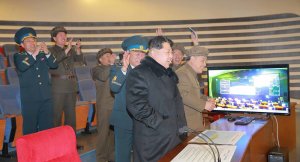 Pyongyang claims to have miniaturized nuclear warhead capabilities, placing the world in North Korea’s crosshairs, but security analysts remain skeptical on how far the Kim regime has come. Amid rising tensions on the Korean peninsula, North Korean leader Kim Jong-Un ordered a fresh spate of nuclear tests, the country’s state media said Friday. The tests come days after South Korean and US forces began large-scale joint exercises simulating a full invasion of the country, which Pyongyang swiftly denounced.
Pyongyang claims to have miniaturized nuclear warhead capabilities, placing the world in North Korea’s crosshairs, but security analysts remain skeptical on how far the Kim regime has come. Amid rising tensions on the Korean peninsula, North Korean leader Kim Jong-Un ordered a fresh spate of nuclear tests, the country’s state media said Friday. The tests come days after South Korean and US forces began large-scale joint exercises simulating a full invasion of the country, which Pyongyang swiftly denounced.
Since the US-South Korean drills began Monday, Pyongyang has escalated its rhetoric, issuing daily warnings of a nuclear strike that would turn Seoul and Washington into “flames and ashes.”
The situation on the Korean peninsula has become increasingly alarming following photographs of Kim Jong-Un posing in front of what state media described as a miniaturized nuclear warhead. Prior to the emergence of the photo, Western analysts speculated that North Korea lacked the capacity to miniaturize a warhead to equip it to an intercontinental ballistic missile. Although Kim said the weapon requires further testing, the world watches with great concern. Still, experts remain divided on how far the North has advanced in shrinking warheads to create strike capability extending to the US mainland.
North Korea’s official KCNA news agency reported Kim ordered “more nuclear explosion tests to estimate the destructive capacity of the newly produced nuclear warheads.” KCNA further reported that Thursday’s launch of two short-range ballistic missiles into the East Sea off of Japan was part of a nuclear strike test.
Kim has decried US-South Korean drills as “saber-rattling” and warned of an imminent nuclear attack if “even a single tree or blade of grass” on North Korean territory is harmed. “I will issue a prompt order to launch attack with all military strike means,” Kim announced.
Tensions on the Korean peninsula first began to rise in January when the Pyongyang regime initiated a fourth nuclear test followed closely by a long-range rocket launch. South Korea and the United States responded by scaling up war games, which Pyongyang calls dress rehearsals for a full-scale invasion.
The US-South Korean drills include a “decapitation strike” scenario, in which the North Korean leadership and command structure is eliminated at the start of any conflict.
This measure has pushed the world closer to the precipice of nuclear annihilation, as Kim’s regime has called for self-defense countermeasures to “adopt a more preemptive and offensive mode.”
Weeks ago the UN Security Council stepped in with an unprecedented set of sanctions against Pyongyang to curtail North Korea’s capabilities in light of the country’s latest nuclear test, rocket launch, and espoused desire to annihilate their neighbors to the South and to strike the US mainland.
In a statement, UN Secretary-General Ban Ki-moon, a South Korean statesman himself, called on the Kim regime to avoid “any further destabilizing acts” and defending the draconian sanctions as a necessary deterrent in the interest of global security.
Russia similarly has called on Pyongyang to dial down the rhetoric, with Foreign Minister Sergey Lavrov calling Kim’s destabilizing behavior “irresponsible.”
[Source: sputniknews(dot)com/world/20160311/1036155260/pyongyang-orders-more-nuke-tests.html
To view source, cut and paste into Google URL and change “(dot)” to “.”.]
Related Article:
North Korea Fires Two Ballistic Missiles Off Country’s East Coast
Sputnik News
March 10, 2016
Following the implementation of harsh new sanctions, North Korea has reportedly launched two short-range ballistic missiles into the East Sea for a second time, according to South Korea’s Yonhap news agency. The missiles were fired from the city of Wonsan, where similar launches have occurred, and sources indicate that the projectiles flew a distance of approximately 300 miles.
“The military is keeping close tabs on the situation and prepared to deal with any North Korean provocations,” South Korea’s Joint Chief of Staff said in a statement. Earlier on Wednesday, North Korean leader Kim Jong Un claimed that Pyongyang is in possession of miniaturized nuclear warheads. “The nuclear warheads have been standardized to be fit for ballistic missiles by miniaturizing them,” Kim said, according to KCNA, adding “this can be called a true nuclear deterrent.”
This week, the Russian Foreign Ministry issued a strong condemnation of North Korea’s threat to use preventive strikes. “In particular, we consider public statements with threats of carrying out some ‘preventive nuclear attacks’ against one’s opponents completely unacceptable,” a statement from the Foreign Ministry reads. “Pyongyang must understand that North Korea completely sets itself against the international community, provides the international legal basis for the use of military force against it.”
Pyongyang has also expressed outrage over joint military drills between Washington and Seoul. The largest ever conducted, the exercises are meant to mimic a hypothetical invasion of North Korea. The UN imposed new sanctions — the harshest in 20 years — against Pyongyang last week over nuclear tests conducted earlier this year. The DPRK also launched a satellite in February which the UN deemed a veiled attempt to demonstrate its ballistic missile capabilities.
Hours after those new penalties were put in place, North Korea fired short-range missiles into the ocean.
[Source: sputniknews(dot)com/asia/20160310/1036043117/north-korea-ballistic-missile-launch.html
To view source, cut and paste into Google URL and change “(dot)” to “.”.]

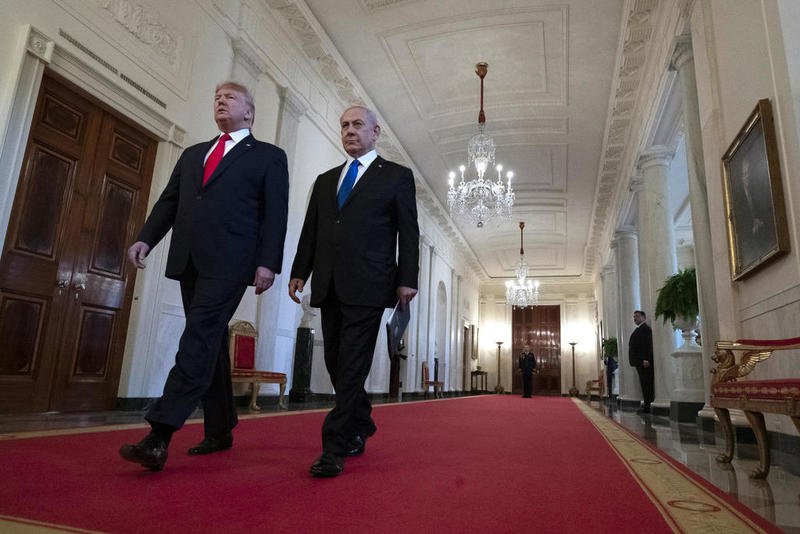

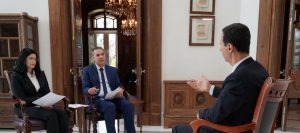
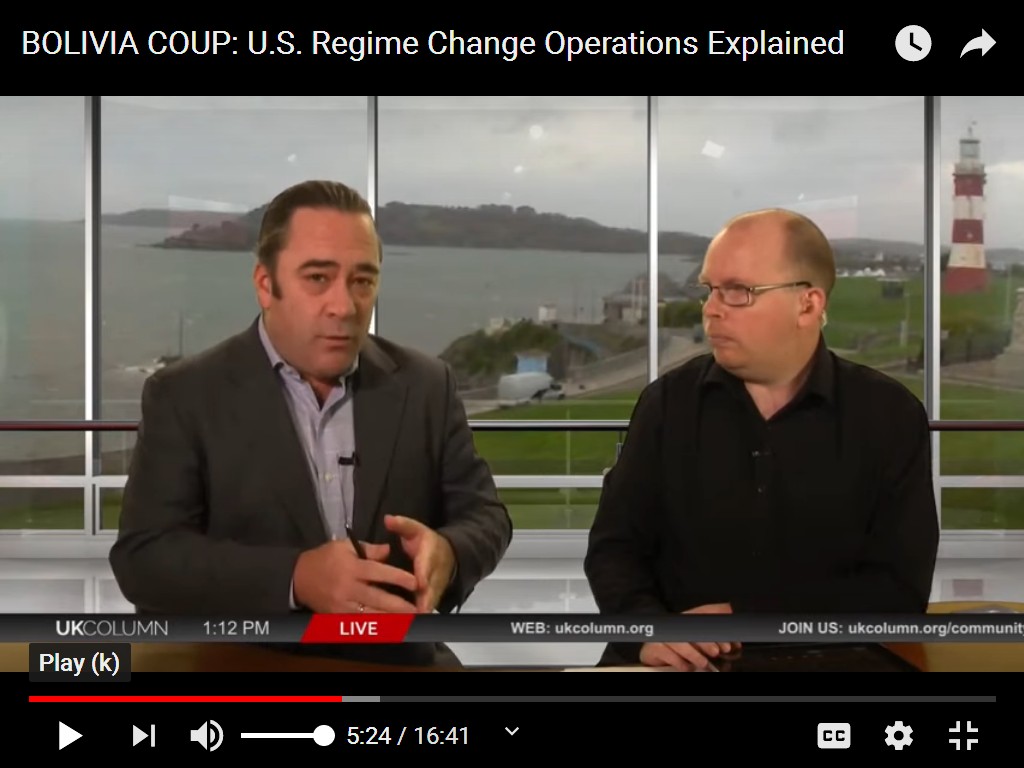


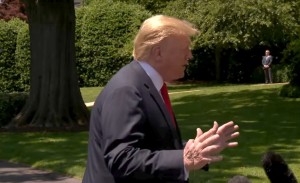








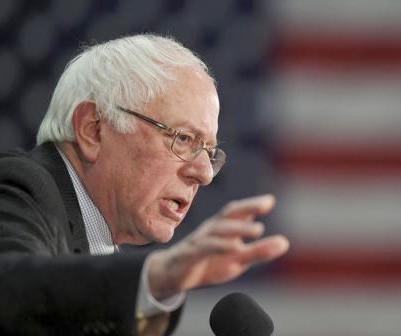











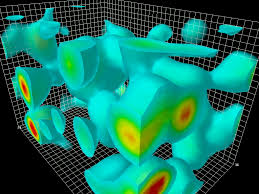


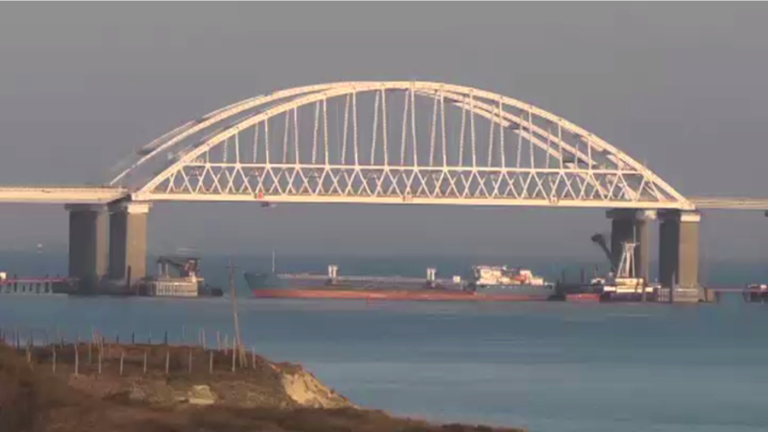








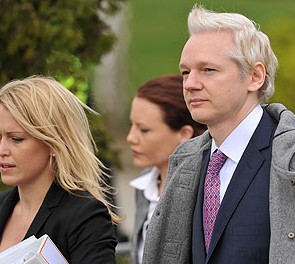









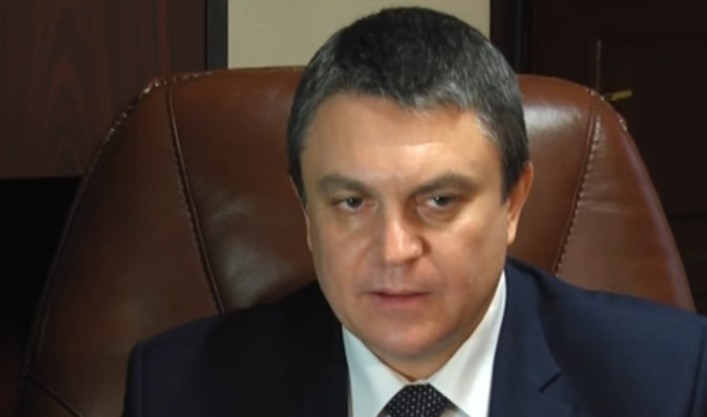






The entirety of my article wasn’t initially published due to a website error and the full version is now available on the website. I welcome all readers to review the comprehensive version that is now published and then draw their own conclusions. This author’s piece was written in response to the improperly and unfully released segment that was originally uploaded via error. The problem is now corrected, so if the author can update the article accordingly, if he so chooses.
Thank you though for considering my piece and reporting on it, I appreciate the commentary and the citation.
Have a good weekend, and take care.
Best,
Andrew
LikeLiked by 1 person
Posted by Andrew Korybko | March 12, 2016, 12:07 amThank you Andrew Korybko for pointing out that I did not have the complete article. I have now published it in full, and found that I had to revise my commentary somewhat, as your points are convincing, particularly about US containment of Russia and China. I always appreciate your excellent work. –Karl Pomeroy
LikeLike
Posted by kpomeroy | March 12, 2016, 1:24 amThiss is a great post
LikeLike
Posted by Kendra | November 1, 2023, 11:23 pm